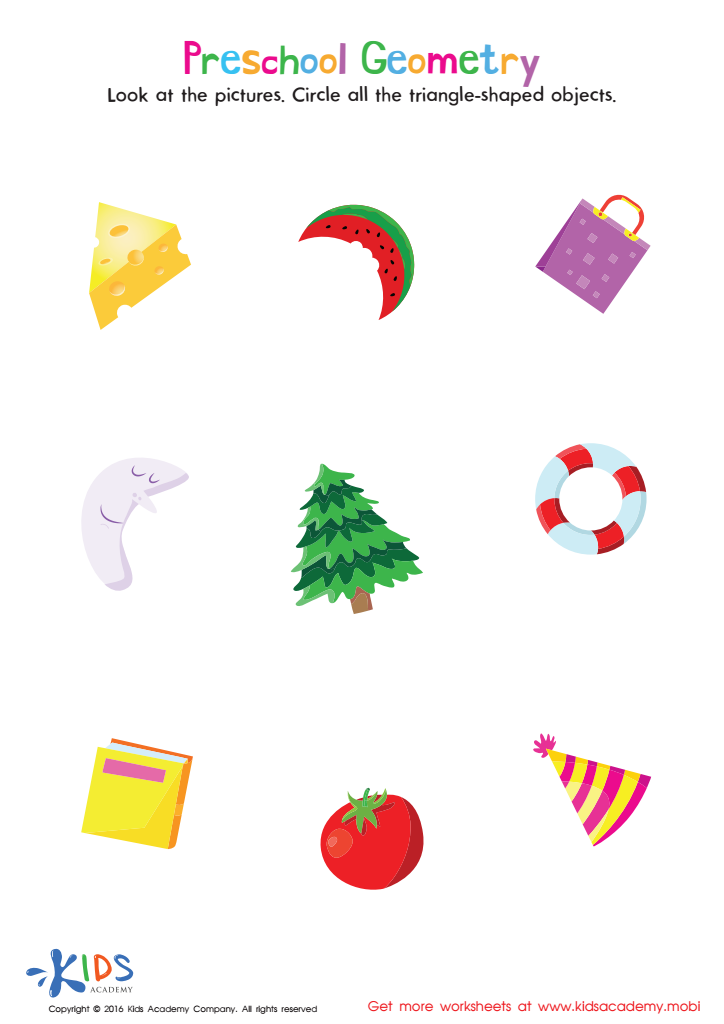Basic geometry understanding Geometry Worksheets for Ages 3-6
8 filtered results
-
From - To
Our engaging "Basic Geometry Understanding" worksheets for ages 3-6 provide young learners with a strong foundation in geometry. Designed to captivate and educate, these worksheets introduce essential geometric concepts through fun and interactive activities. Children will explore shapes, patterns, spatial reasoning, and more, enhancing their cognitive and visual-spatial skills. With a focus on hands-on learning, these printable resources help children recognize and describe shapes, boosting their mathematical confidence. Perfect for early learners, our geometry worksheets make learning an exciting adventure, preparing them for more advanced math challenges ahead. Unlock their potential today with these fantastic educational tools!
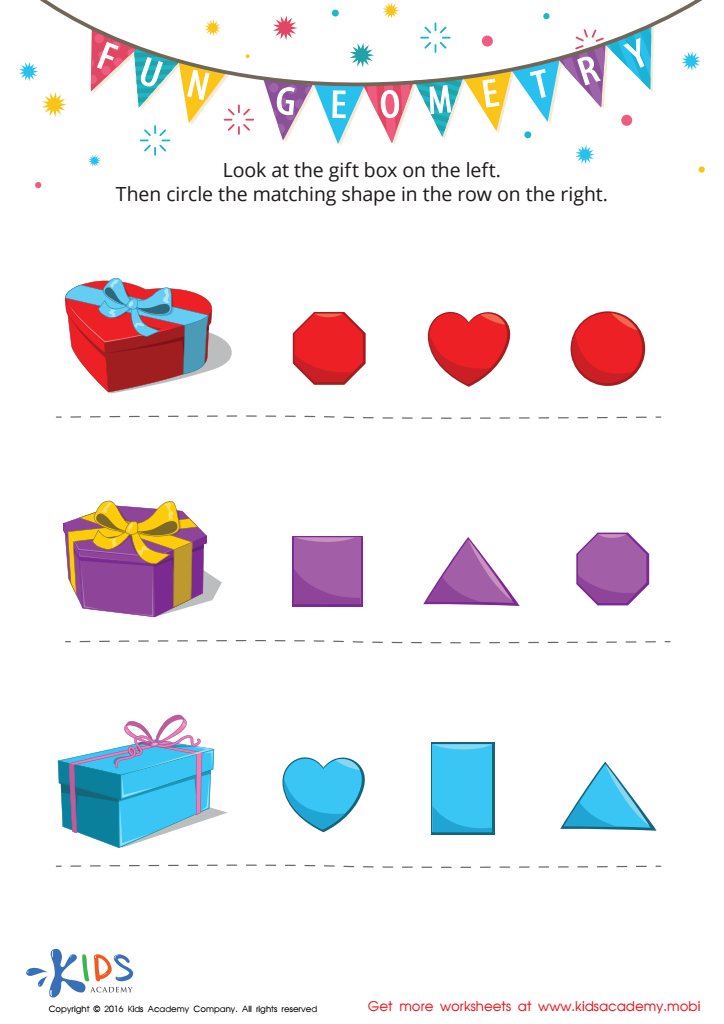

Fun Geometry Worksheet
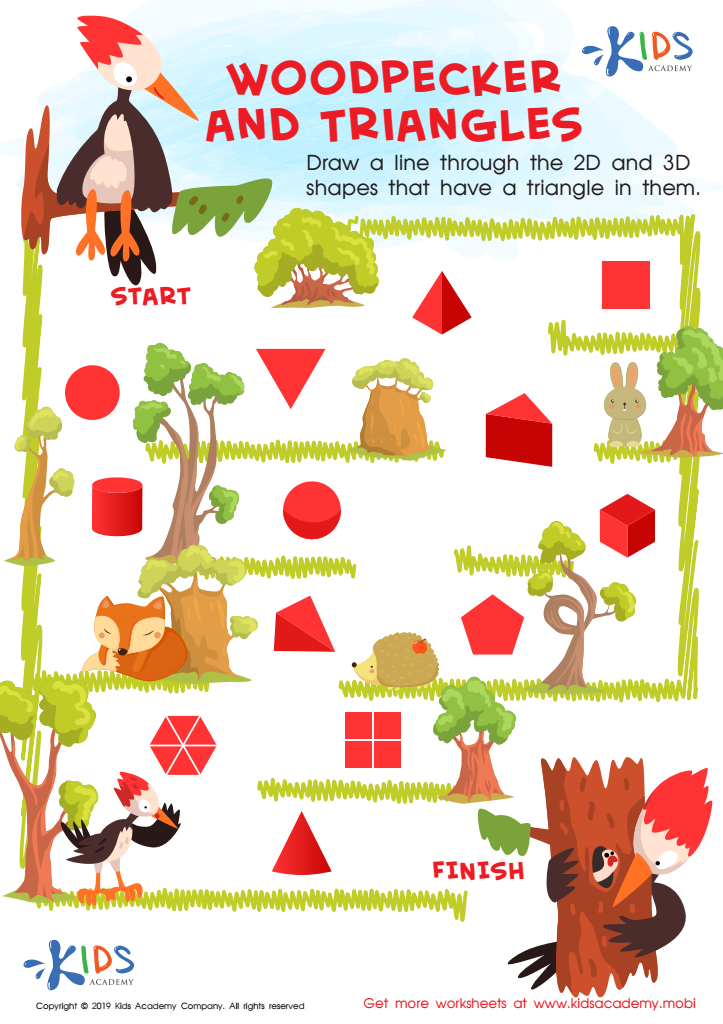

Woodpecker and Triangles Worksheet
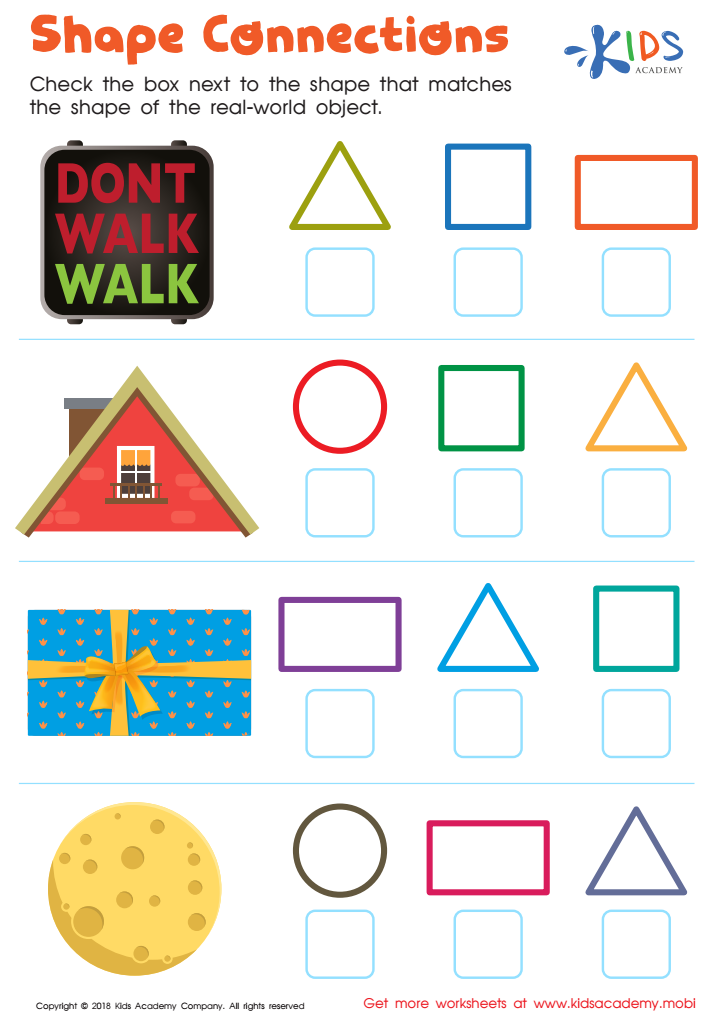

Shape Connections Worksheet
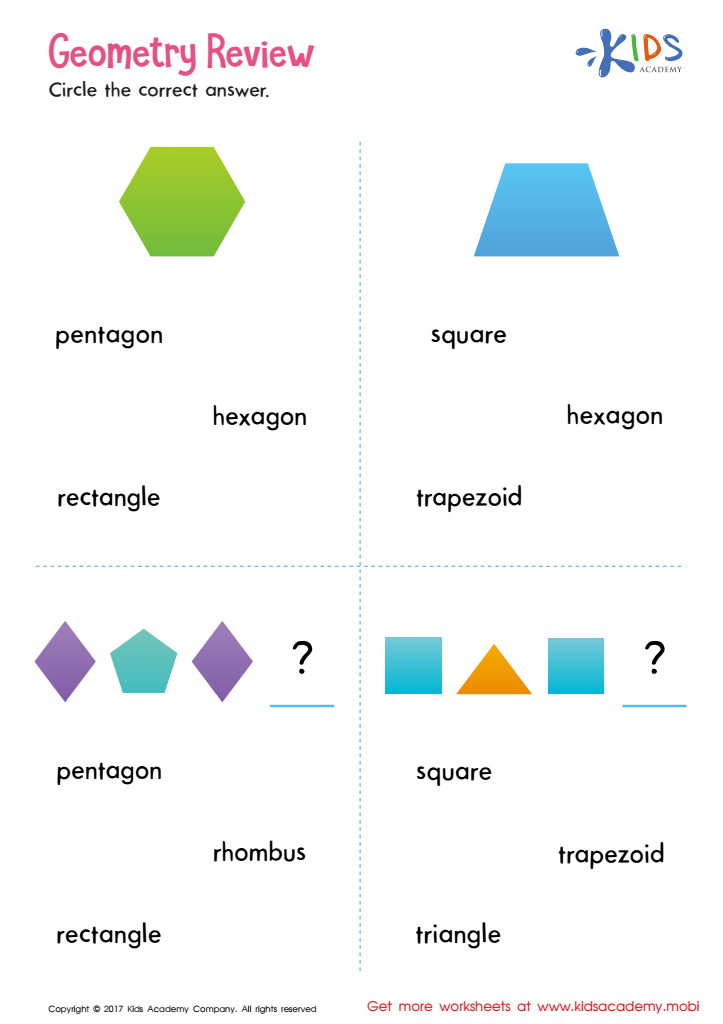

Geometry Review Printable
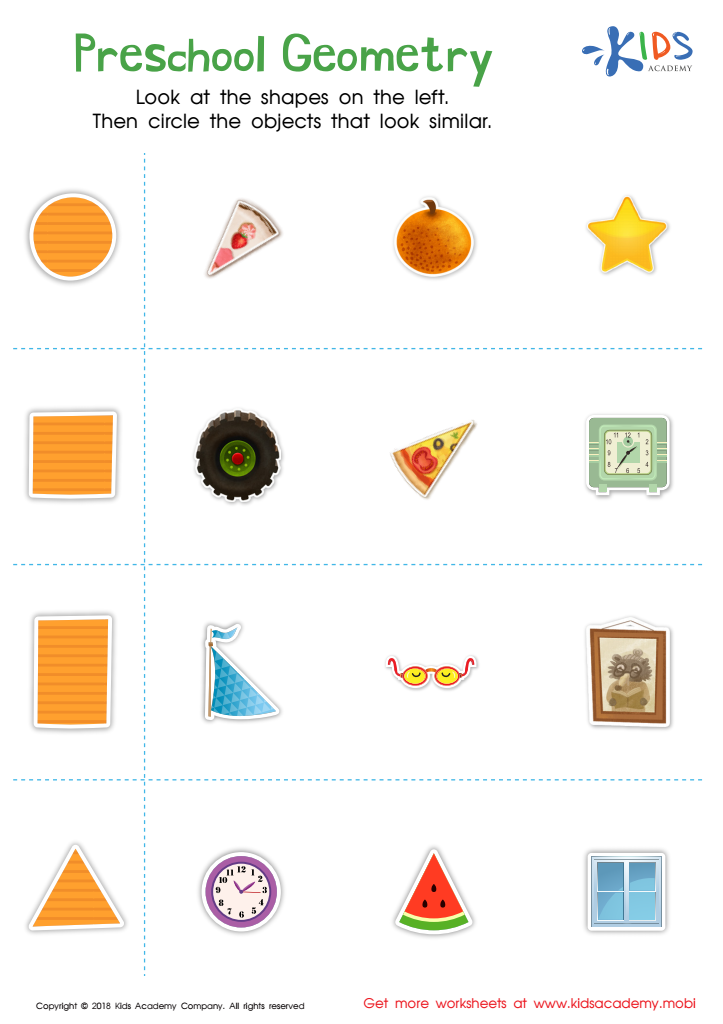

Preschool Geometry Worksheet
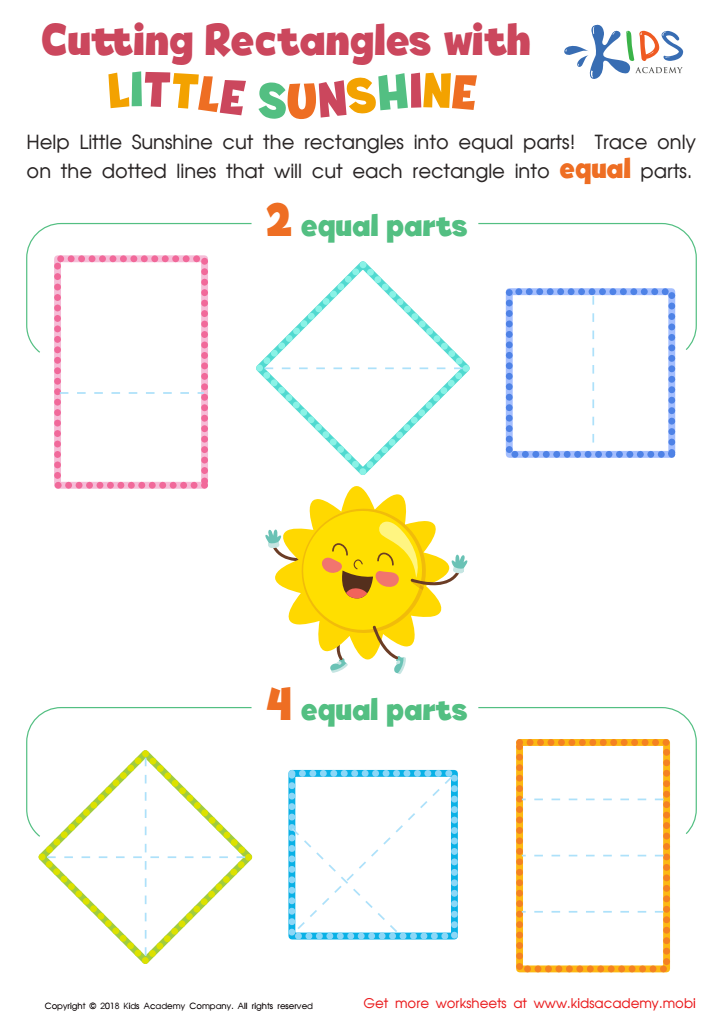

Cutting Rectangles with Little Sunshine Worksheet
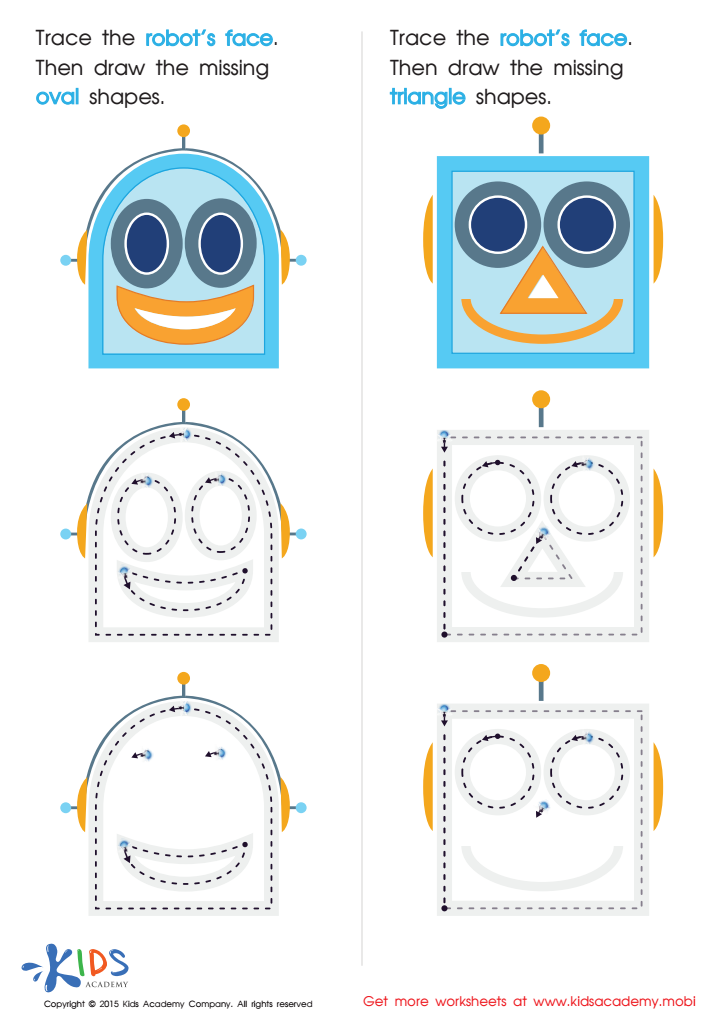

Drawing Ovals And Triangles with Fun Printable
Basic geometry understanding is incredibly vital for children ages 3-6 as it lays a foundation for more complex mathematical concepts and critical thinking skills they'll need later in life. Parents and teachers should care about fostering an early grasp of geometry for several reasons.
First, understanding shapes and spatial relationships helps young children make sense of their world. For example, when children recognize and differentiate between circles, squares, and triangles, they are developing skills that enable them to understand and organize visual information, an essential component of early literacy and numeracy.
Secondly, early exposure to geometry supports fine motor skills. Activities like drawing shapes or assembling puzzles require precise movements, which help improve hand-eye coordination and dexterity.
Another significant benefit is enhancing problem-solving and reasoning abilities. Recognizing patterns, categorizing objects, and visualizing spatial relationships encourage logical thinking, an essential skill for various academic disciplines and real-life scenarios.
Moreover, engaging with basic geometry can boost a child's confidence and enjoyment in learning. Fun, hands-on activities like playing with building blocks or engaging in shape scavenger hunts can cultivate a positive attitude towards math, setting the stage for a lifelong love of learning.
Overall, early geometric comprehension supports academic success and development, making it crucial for parents and teachers to include it in early childhood education.
 Assign to My Students
Assign to My Students











